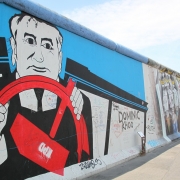How did Mikhail Gorbachev end the Cold War?
Topic of Study [For H2 and H1 History Students]:
Paper 1: Understanding the Cold War (1945-1991)
Section A: Source-based Case Study
Theme I Chapter 3: End of Bipolarity
About the Reformist: Mikhail Sergeyevich Gorbachev
Before Gorbachev assumed the leadership position in the Soviet Union, he possessed credentials that contributed to his gradual and eventual ascension to power. For example, in 1979, Gorbachev became a full member of the Politburo. When Konstantin Chernenko died on 10 March 1985, Gorbachev was elected to succeed him as the next General Secretary of the Communist Party of Soviet Union (CPSU).
The paradigm shift: ‘New Thinking’
From 25 February to 6 March 1986, the newly-elected Soviet leader delivered a pivotal speech during the 27th Party Congress of the CPSU in Moscow.
During the address, Gorbachev introduced a new foreign policy, known as Novoe Myshlenie (‘New Thinking’). He sought to achieve peaceful co-existence with other nations in the world. To do so, he proposed a series of domestic reforms.
Notably, his foreign policy included the renunciation of the controversial Brezhnev Doctrine and support for arms reduction between superpowers.
End of the Arms Race
Following the historic 27th Party Congress speech, Gorbachev arranged to meet his counterpart, Ronald Reagan, during a series of summits, such as the Reykjavik Summit in October 1986.
Although the disarmament talks had failed due to disagreements between the two leaders over the testing of the Strategic Defense Initiative (SDI), the willingness of Gorbachev to enter negotiations was a milestone achievement.
A year later, Gorbachev met Reagan during the Washington Summit and eventually came to a common consensus on disarmament. The Intermediate-Range Nuclear Forces (INF) Treaty was signed, signifying the end of the arms race.
Within the terms of agreement, Gorbachev pledged to reduce conventional forces in Europe, which later affected the Eastern European satellites.
End of the ideological division in Europe
On 7 December 1988, Gorbachev gave a speech at the United Nations General Assembly. It was a remarkable event as he declared his intentions to withdraw troops from Eastern Europe and the Third World (such as Afghanistan).
The necessity of the principle of freedom of choice is also clear to us. The failure to recognize this, to recognize it, is fraught with very dire consequences, consequences for world peace… Freedom of choice is a universal principle and there should be no exceptions…
The Soviet Union has made a decision on reducing its armed forces. In the next two years, their numerical strength will be reduced by 500,000 persons, and the volume of conventional arms will also be cut considerably.
UN General Assembly Speech by Mikhail Gorbachev, 8 December 1988
Subsequently, Soviet Union’s decision withdraw from Afghanistan marked the end of the largest Cold War conflict. Additionally, Soviet aid to revolutionary movements in Africa and Latin America was cut.
As a result of these major shifts in Soviet foreign policy, the fall of Communism in Eastern Europe was imminent. For example, in East Germany, public protests broke out. Popular movements escalated to the point that East German leader, Erich Honecker, resigned on 18 October 1989. On 9 November 1989, the Berlin Wall fell, thus marking the end of the division between East and West Germany.
What can we learn from this article?
Consider the following question:
– Assess the view that Gorbachev was the chief architect in causing the end of the Cold War [to be discussed in class].
After examining the individual contributions of Gorbachev and Reagan, you can attempt source based case study questions to improve your answering skills. Alternatively, sign up for our JC History Tuition and receive summary materials. We conduct writing workshops and content revision classes to expand your areas of study such that you can revise productively and effectively.
The H2 and H1 History Tuition feature online discussion and writing practices to enhance your knowledge application skills. Get useful study notes and clarify your doubts on the subject with the tutor. You can also follow our Telegram Channel to get useful updates.
We have other JC tuition classes, such as JC Math Tuition and JC Chemistry Tuition. For Secondary Tuition, we provide Secondary English Tuition, Secondary Math tuition, Secondary Chemistry Tuition, Social Studies Tuition, Geography, History Tuition and Secondary Economics Tuition. For Primary Tuition, we have Primary English, Math and Science Tuition. Call 9658 5789 to find out more.

